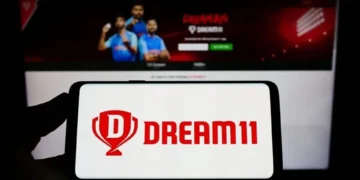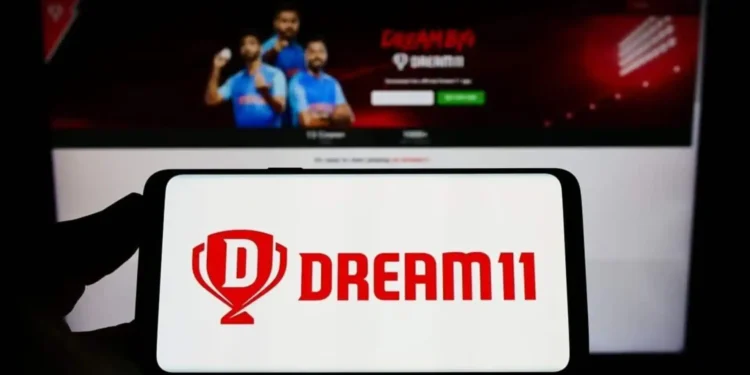Dream11’s parent company saw a staggering 95% drop in revenue following India’s passage of the Online Gaming Bill, 2025. CEO Harsh Jain confirms there will be no layoffs and outlines a bold pivot to a free-to-play, AI-driven “Dream11 3.0” strategy.

Dream11 Loses 95% of Revenue After India’s Real-Money Gaming Ban, But CEO Rules Out Layoffs
A Devastating Blow—95% of Revenue Vanishes Overnight
In a dramatic turn of events, Dream11’s parent company, Dream Sports, has seen a staggering 95% decline in revenue, virtually wiping out all profits following the enactment of India’s Promotion and Regulation of Online Gaming Bill, 2025. The law imposes a complete ban on all forms of real-money gaming (RMG), directly affecting Dream11—the country’s largest fantasy sports platform—which suspended all paid contests starting August 22.
No Layoffs—“All Talent Here Is Safe”
Despite the near-total revenue collapse, CEO and co-founder Harsh Jain has made it clear that Dream Sports will not resort to layoffs. In interviews with CNBC-TV18 and Moneycontrol, Jain emphasized they have sufficient capital to sustain their workforce—approximately 800 employees—for the next two years. “We’re not interested in doing any layoffs. All the talent here is safe,” he stated, calling this period “one of the darkest times for us.”
No Legal Fight—Accepting the New Reality
Dream Sports has also ruled out any legal challenge to the ban. Jain labeled the decision a “knockout punch” but said pursuing litigation against the government would be futile. “We won’t waste energy fighting… if regulation changes again, we’ll re-evaluate,” he explained, choosing instead to focus on the future.
Sponsorship Fallout—Team India’s Jersey Now Unsponsored
The ban has also disrupted Dream11’s high-visibility sponsorship of the Indian cricket team. The Rs 358 crore deal has been terminated, as associating with an RMG operator is no longer legally permissible. With the Asia Cup on the horizon, the BCCI is scrambling to identify a new sponsor.
Enter Dream11 3.0—A Free-to-Play, AI-Powered Visage
Amid these shocks, Dream Sports is launching a new chapter—calling it Dream11 3.0—that pivots away from betting-driven models. The revamped strategy centers on:
- Free-to-play engagement
- Ad and sponsorship-based revenue
- Heavy investment in AI-driven fan experiences, sports analytics, content and commerce ecosystem (FanCode, DreamSetGo, DreamMoney, DreamCricket).
Jain described Dream11’s previous non-RMG business (2008–2012) as Dream11 1.0, while the RMG-driven phase (2012–2025) was Dream11 2.0. Now, the company is returning to fundamentals—engagement, innovation, and monetization in non-RMG channels, with AI and global expansion playing leading roles.
Holding Cash and Confidence—A Roadmap Forward
Financially, Dream Sports has grounded hopes on its capital reserves. Jain is confident the company’s cash runway enables it to retain employees and retool its product roadmap. He remains an unabashed “delusional optimist,” as quoted in a Moneycontrol interview.
As Dream Sports realigns, its existing verticals—FanCode (streaming & merchandising), DreamSetGo (sports experiences), and DreamMoney (financial literacy and fintech)—remain operational and integral to its pivot.
India’s new law has delivered Dream Sports a crushing blow—but the company is determined to rebuild without shrinking its workforce. Instead of a legal battle, leadership bets on innovation, diversification, and the resilience of its engaged user base. With its pivot to Dream11 3.0, Dream Sports is placing its chips on AI, creator-and fan-driven products, and a broader sports ecosystem. Whether this renewed vision succeeds will be a closely watched saga in India’s tech and sports-entertainment landscape.
READ ALSO…...RTO Seizes Autorickshaw & Suspends License After Viral Slapping Video in Andheri 2025















 Categories
Categories










